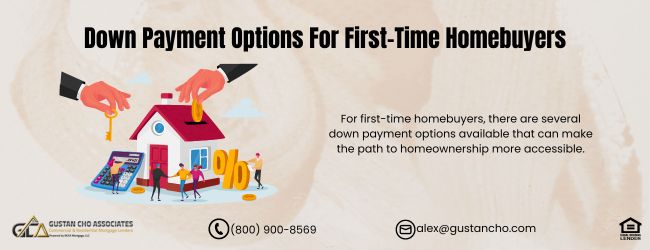Down Payment Assistance Programs and Grants

This guide covers the down payment assistance programs and grants available for homebuyers. Fortunately, various programs and resources can help homebuyers with their down payment. With a creative, experienced loan officer, the borrower with first-time assistance for the down payment can close on their home purchase without closing costs. Lenders offer down payment assistance programs to eligible borrowers.
There are forgivable and nonforgiveable down payment assistance programs and grants.
Each down payment assistance has its own lending requirements—hundreds of down payment assistance programs and grants. Lenders can provide grants, loans, tax credits, and other financial aid to help you buy a home. This blog post will explain down payment assistance, how it works, who qualifies, and where to find it. We will review a few forgivable and unforgivable down payment assistance programs and grants.
Eligible Properties With Down Payment Assistance Programs
All down payment assistance programs and grants are for owner-occupant primary residences. You cannot qualify for down payment assistance on second or investment homes. Eligible property type includes the following:
- 1-2 unit owner-occupant primary homes
- Townhomes
- FHA approved Condos
- PUDs (planned urban developments)
- HUD-Approved Manufactured Homes permanently affixed to a concrete foundation
Types of Eligible Down Payment Assistance Mortgage Programs
There are different types of down payment assistance programs and grants. There are forgivable and unforgivable down payment assistance programs. Below is HUD’s eligible down payment assistance programs for FHA loans:
- FHA 203(b) – when you think of a standard FHA loan, that is a 203(b)
- FHA Repair Escrow – these are rare situations when something minor needs to be fixed in the home, and the funds to do so are held in escrow
- FHA 203(k) Limited
- FHA 203(k) Standard
THAT’S RIGHT – A DOWN PAYMENT ASSISTANCE MORTGAGE IS ALLOWED ON A RENOVATION LOAN.
Participating In Down Payment Assistance Mortgage Programs
How do you participate in the down payment assistance mortgage program? The borrower must complete a homeownership counseling course. These are offered by an identity of the borrower’s choice but must be approved by HUD. The borrower needs to take the class taught by a HUD-approved housing counselor:
The borrower will initially pay the course cost, but the lender will credit up to $100 back at closing for this course. This course is mandatory and educational.
It will teach you about the potential risks of homeownership and proper budgeting. For more information on what these courses offer and where to find an approved course, please visit HUD HOUSING COUNSELING COURSES. After completing this course, you must send in your certificate of completion. The loan will not be able to close without this.
Down Payment Assistance For First-Time Homebuyers
Who is eligible to use the program? As mentioned above, total borrowers’ income equals or less than 140% of the median area income. Down payment assistance is offered to first-time homebuyers. First-time homebuyers are any borrower who did not own a property in the past three years.
Down Payment Assistance For Heroes and First Responders
Any borrower on the loan application who is a current, retired, volunteer, or non-paid first responder is eligible for down payment assistance. First responders are defined as police officers, public safety officers, paramedics, firefighters, or emergency medical technicians (EMTs). Heroes are other professionals who keep the public safe.
Examples of heroes are educators and medical personnel: nurses, doctors, phlebotomists, health ambassadors, and American Red Cross workers. A civil servant in a federal, state, or local municipality.
Military personnel are classified as heroes and are eligible for first-time assistance programs and grants. The down payment mortgage assistance comes in the form of a forgivable grant. The down payment assistance is capped at a maximum of 3.5% of the purchase price which is the minimum FHA down payment requirement. Since HUD requires a 3.5% down payment on FHA loans, we utilize the 3.5% from the down payment mortgage assistance.
Closing Costs on DPA Home Purchases
Please remember that you are still responsible for closing costs but can use seller concessions to pay up to 6% of the purchase price towards your closing cost. Seller concessions combined with the down payment assistance cannot result in your receiving cash back at closing. That is not allowed.
This gift is forgivable after three years of homeownership. You cannot refinance your loan within the first three years or will owe the down payment assistance funds back.
The same is true if you sell your home. The average American has been in their home for over three years, so we do not see this as a problem. One thing to know is that using down payment assistance programs takes longer than regular FHA loans to close. There are a few more steps involved in receiving this grant. We recommend asking for at least 45 days to close on this program.
DPA Loan Program With No Closing Costs
Down payment assistance mortgage programs are an amazing way to get into a home. Sometimes, they are not the best option for your long term. Seller concessions have been very popular in the housing market as of late. With home values on the rise, larger down payments are needed. Since funds for a down payment are the largest hurdle for potential home buyers, we have a few suggestions.
How Do Seller Concessions Work
If you have verified funds for the required down payment but want to keep that money in your pocket, asking the seller to pay concessions may be a good idea. Depending on the loan program you choose, concessions are different. Please see below:
- Conventional 3%
- FHA 6%
- VA 4%
- USDA 6%
It is important to weigh all your options. Sometimes, utilizing seller concessions instead of a down payment assistance program will save you thousands of dollars over the long run.
How Down Payment Assistance Can Help You Buy a Home
Saving sufficient money for a down payment is a major obstacle numerous prospective homebuyers encounter. The down payment refers to the initial payment made when purchasing a home, typically represented as a percentage of the total purchase price. For example, if you buy a home for $500,000 and put 10% down, your down payment would be $50,000.
A down payment has several benefits for homebuyers. If strucctured correctly, you can buy a house with no money down and no closing costs.
It can lower your monthly mortgage payment, reduce your interest rate, help you avoid paying private mortgage insurance (PMI), and increase your chances of getting approved for a loan. However, saving for a down payment can also be difficult, especially in today’s competitive and expensive housing market.
What Is a Down Payment Assistance Mortgage?
Down payment assistance helps homebuyers cover the upfront cash a lender requires to buy a home. The money can come from various sources, such as federal and state agencies, banks, and nonprofit organizations.
The money can be in grants, loans, vouchers, and more. Down payment assistance is accessible for various types of mortgages, including both government-backed and conventional options.
However, down payment assistance programs are only for some. To qualify for a mortgage and assistance, homebuyers must meet certain criteria, such as income, credit score, and pre-approval. Some programs may also have additional requirements, such as location, property type, occupancy, education, or repayment terms.
How Does Down Payment Assistance Work?
Down payment assistance works differently depending on the type and source of the program. Here are some common types of down payment assistance programs and how they work:
Grants For Down Payment Assistance Mortgage For Homebuyers
Grants are money you don’t have to pay back. Government agencies or nonprofit organizations usually give them to low- or moderate-income homebuyers who meet certain eligibility requirements. Grants can vary in amount and be utilized towards either the down payment or closing costs.
Loans For Down Payment Assistance Mortgage For Homebuyers
Loans are money you must pay back with interest. Government agencies, banks, or nonprofit organizations can offer them as a second mortgage or a lien on the property. Loans can exhibit varying terms and conditions depending on the program. Certain loans might be interest-free or deferred until the home is sold or refinanced, while others may offer low-interest rates or flexible repayment choices.
Tax Credits For Down Payment Assistance Mortgage For Homebuyers
Tax credits are money you save on your taxes. Federal or state governments can offer them to eligible homebuyers who purchase a home in a designated area or meet certain income limits. Tax credits can reduce your tax liability dollar-for-dollar or increase your refund amount. Some tax credits may be claimed every year for the life of the loan, while others may be claimed only once.
Vouchers For Down Payment Assistance Mortgage
You can use the money to pay for housing expenses. They are usually given by local housing authorities or nonprofit organizations to low-income families who participate in certain housing programs. Vouchers can cover part or all of your monthly mortgage payment or rent.
Who Qualifies For DPA Mortgage Programs?
To qualify for down payment assistance, you must meet the requirements of the mortgage lender and the assistance program. While the exact requirements may differ based on the type and origin of the program, there are some common factors to consider: Income. Most programs have income limits based on your household size and location. You must earn less than a certain amount yearly to be eligible for assistance. Some programs may require minimum income to ensure you can afford the mortgage payments.
Credit Score Requirements For DPA Mortgage Loans
Most programs have credit score requirements based on the type of mortgage you are applying for. You need a certain credit score or higher to qualify for assistance. Some programs may also consider other aspects of your credit history, such as debt-to-income ratio or payment history.
How To Get Pre-Approved on Down Payment Assistance
Most programs require getting pre-approved for a mortgage before applying for assistance. Pre-approval means that a lender has reviewed your financial situation and agreed to lend you a certain amount for a home purchase. Pre-approval shows that you are a serious and qualified buyer and helps determine how much you can afford to borrow.
HUD DPA Program
The Department of Housing and Urban Development, or HUD, offers various programs and resources for homebuyers, including DPA programs. You can visit HUD’s website to find local home-buying programs, housing counselors, state housing agencies, and FHA-approved lenders in your area.
State Housing Agencies
They administer various housing programs and funds for homebuyers in their states, including down payment assistance. You can visit your state housing agency’s website to find out what programs and resources are available in your state and how to apply for them.
Local housing authorities manage public housing and voucher programs for low-income families in their jurisdictions, including down payment assistance.
To determine if any programs or resources are available for homebuyers in your vicinity and to learn about the application process, reach out to your local housing authority.
Nonprofit Organizations
Nonprofit organizations provide various services and support for homebuyers in their communities, including down payment assistance. You can search online or ask for nonprofit organizations offering homebuyer assistance in your area and how to contact them.
Where To Find DPA Programs and Grants?
Many DPA program sources are available for homebuyers across the country. Not all mortgage lenders offer down payment assistance. Some places where you can start your search is the internet. Some programs are only available in certain areas, such as cities, counties, states, or regions.
Homebuyers of DPA programs and grants must buy a home in a designated area to qualify for assistance. DPA programs may have preferences for certain neighborhoods or communities within an area.
Banks and lenders offer homebuyers various mortgage products and programs, including down payment assistance. Explore multiple lenders and compare their offerings to discover various options and incentives they provide for down payment assistance and the eligibility requirements.






Responses